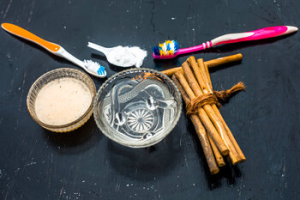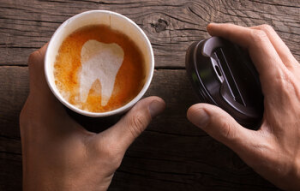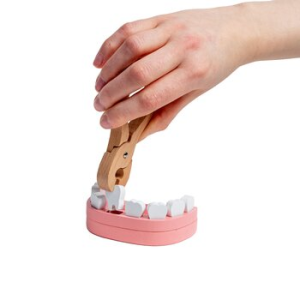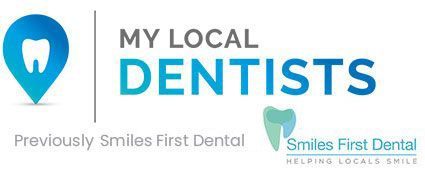Toothache Relief: Strategies for Soothing Oral Pain

Nothing disrupts your day quite like the piercing throb of a painful tooth. Whether it’s a subtle annoyance or an overpowering discomfort, toothaches are notorious for being uninvited nuisances. Thankfully, various methods can relieve toothache, from home remedies for toothache pain to more advanced dental treatment.
The Underlying Causes of Tooth Pain
Understanding the root cause of dental pain is essential to tailor relief strategies appropriately.
Toothaches, often considered the body’s alarm system for underlying issues, can result from several factors:
- Tooth Decay: As the prime culprit behind most toothaches, cavities occur when bacteria erode the tooth’s surface. When left unchecked, this decay can progress to the tooth’s inner layers, irritating the sensitive nerve endings and manifesting as pain.
- Gum Disease: This is a gum line inflammation that can progress to affect the bone. Swollen, red, or bleeding gums can be early signs. As the disease worsens, it can result in periodontitis, where gums pull away from the sore tooth and form spaces (called pockets) that become infected. The body’s immune response to this infection, combined with bacterial toxins, starts to break down the bone and connective tissue keeping your teeth in place, often resulting in pain.
- Tooth Sensitivity: Teeth sensitivity can occur because of a worn tooth enamel or an exposed tooth root. Consuming hot, cold, sweet, or very acidic foods and drinks can then cause sharp, temporary pain.
- Dental Trauma: Any trauma, be it from biting on something hard, getting hit in the face, or a fall, can lead to chipped, broken, or displaced teeth. This kind of injury can result in significant pain, especially if the tooth’s nerve is exposed or damaged.
- Abscessed Tooth: This is a severe infection located at the root of a tooth or between the tooth and the gum. Symptoms can range from a throbbing, persistent pain to fever and a foul taste in the mouth.
- Sinus Infection: The location and nature of sinus cavities can sometimes cause pain that resembles toothache, especially in the upper rear teeth, which are close to the sinuses. It’s essentially referred to pain stemming from inflammation or infection in the sinuses.
Natural Toothache Remedies to Try at Home
While it’s tempting to turn to homemade remedies for quick relief, it’s pivotal to understand these are short-term solutions:
- Saltwater Rinse: Considered one of the oldest tricks in the book, the salt acts as a natural disinfectant, loosening up food particles stuck between teeth. The warm water provides comfort, soothing the affected area.
- Hydrogen Peroxide Rinse: This disinfectant can help relieve pain and inflammation. It can also help reduce plaque and heal bleeding gums. Always ensure you dilute it and never swallow it.
- Cold Compress or Ice Pack: The application of cold constricts local blood vessels, reducing inflammation and numbing the area, acting as a natural anaesthetic.
- Clove Oil: Cloves have been used in dental procedures for ages due to eugenol. When a few drops are applied, it numbs the painful zone and has antibacterial properties.
- Peppermint Tea: Apart from its refreshing taste, peppermint also has numbing properties. When applied to the affected tooth, the cool tea bag relieves the constant throbbing.
- Thyme Essential Oil: A powerhouse of antioxidant properties, thyme, when applied in a diluted form, also boasts potent antibacterial and antifungal properties, aiding in toothache pain relief.
- Aloe Vera Gel: Famous for skin treatments, the gel from this plant can also help heal gums and provide relief from pain due to its anti-inflammatory properties.
Keep in mind that these remedies only provide temporary pain relief. Persistent pain is a clarion call to seek professional help.
Over-the-Counter Solutions
When the pain becomes unbearable, and home remedies don’t provide solace, over-the-counter solutions can be a blessing:
- Pain Relievers: Medications like paracetamol or ibuprofen can offer relief. It’s pivotal to follow dosage recommendations and consider potential drug interactions.
- Fluoride Toothpaste: Specifically designed for sensitive teeth, this toothpaste helps strengthen enamel and reduces pain sensations.
- Oral Gels: With a numbing agent as the primary ingredient, these can provide immediate, albeit temporary relief, especially for teething babies or after dental procedures.
When Home Remedies Don’t Cut It
Relying entirely on home solutions might provide immediate solace but can be detrimental if underlying issues go unchecked. Persistent throbbing pain, unusually red or swollen gums, or a constant bad taste are not just symptoms—they are alarm bells.
They indicate deeper issues that require professional intervention, such as infections, advancing gum disease, or deteriorating dental health.
It’s essential to consult a dentist at the earliest to ensure that minor issues don’t escalate into major dental complications.
Steps to Prevent Future Toothaches

Prevention, the cornerstone of oral health, is often more manageable and less painful than finding a cure.
Integrating specific habits into your daily routine can significantly reduce the likelihood of experiencing dental pain in the future.
Here’s a deeper dive into the steps that can steer you away from toothaches:
Regular Dental Checkups:
- Importance: Much like routine health checkups, regular dental visits can identify potential issues like cavities, gum disease, or early signs of oral cancer before they develop into more severe problems.
- Recommendation: Ideally, visiting a dentist every six months can help in monitoring and maintaining oral health. These checkups often come with a professional cleaning session, ensuring hard-to-reach areas remain free of plaque and potential decay.
Good Oral Hygiene:
- Foundation: The bedrock of dental health lies in adopting a comprehensive oral hygiene regimen.
- Brushing: Using fluoride toothpaste and a suitable toothbrush, ensure you brush your teeth twice daily. This action removes food particles and prevents bacterial growth. Remember to replace your toothbrush or the head of your electric brush every 3-4 months.
- Flossing: Often overlooked, daily flossing helps remove food particles and tartar from between the teeth and below the gumline—areas your toothbrush might not reach.
- Rinsing: Using an antibacterial mouthwash can eliminate bacteria that cause plaque and gum disease, offering an additional layer of protection.
Avoid Sugary Foods:
- The Sugar Menace: Sugars feed the harmful bacteria in the mouth, producing acids that erode tooth enamel, leading to cavities.
- Moderation is Key: While it might be challenging to eliminate sugary foods entirely, limiting their intake and being mindful of consumption, especially between meals, can make a significant difference.
- Aftercare: If you do indulge in sugary treats, rinse your mouth or brush your teeth soon after to minimise the duration your teeth are exposed to the acids.
Wear Protective Gear:
- Why It Matters: Dental trauma can result from unexpected impacts during physical activities. A knocked-out tooth, fractured jaw, or bitten tongue can lead to immediate and prolonged dental pain.
- Types of Protective Gear: Depending on the sport or activity, consider using mouthguards, full-face helmets, or face cages. Although it’s a bit pricier, custom-fit mouthguards provide better protection than their one-size-fits-all counterparts.
- Maintenance: Regularly inspect and clean your protective gear. Replace it if you notice signs of wear or damage or if it no longer fits properly.
Incorporating these habits might require slight adjustments to your daily routine, but the payoff—a lifetime free from debilitating toothaches and costly treatments—is undoubtedly worth the effort.
The Connection Between Diet and Dental Health
One often underestimated aspect of preventing toothaches is the relationship between diet and oral health. While we’ve discussed the danger of sugary foods, a broader spectrum of dietary choices can influence dental health.
The Role of Vitamins and Minerals
- Calcium: Renowned for its role in strengthening bones, calcium also fortifies tooth enamel. A deficiency might lead to fragile teeth and, subsequently, dental pain. Dairy products, fortified non-dairy milk, leafy greens, and almonds are excellent calcium sources.
- Vitamin D: It enhances calcium absorption, playing a dual role in bone and dental health. Exposure to sunlight, fortified foods, and fatty fish are primary sources of Vitamin D.
- Fluoride: Often added to drinking water and toothpaste in many regions, fluoride reinforces enamel, rendering it more decay-resistant.
- Vitamin C: Deficiency can result in gum inflammation and bleeding, making gums more susceptible to infections. Citrus fruits, tomatoes, and bell peppers are replete with Vitamin C.
Hydration and Oral Health
 Water’s Pivotal Role: Drinking water, particularly after meals, can assist in washing away residual food and diluting acids, safeguarding against tooth decay. It also supports saliva production, nature’s primary defence against a deteriorating oral environment.
Water’s Pivotal Role: Drinking water, particularly after meals, can assist in washing away residual food and diluting acids, safeguarding against tooth decay. It also supports saliva production, nature’s primary defence against a deteriorating oral environment.
Promotion of Saliva: Foods that require significant chewing, such as fibrous vegetables and fruits, stimulate saliva production. Saliva contains proteins and minerals that guard tooth enamel against decay, neutralise acids, and even repair early-stage cavities.
Foods to Watch Out For
While sugar is the main culprit, other foods and drinks can be surprisingly harmful to teeth:
- Acidic Foods and Beverages: Citrus fruits, while vitamin-rich, are acidic and can erode enamel over time. The same applies to carbonated soft drinks, which often combine acid and sugar. Limiting intake and not swishing them around in the mouth can mitigate their impact.
- Sticky Foods: Items like dried fruits might seem healthy but can stick to teeth, holding sugar and acids in contact with the enamel for extended periods.
- Alcohol and Caffeine: These can reduce saliva production. Consuming them in moderation and staying hydrated can help counteract their effects.
- Hard Foods: Chewing on hard items, like certain candies or ice cubes, can crack or chip teeth, leading to instant pain.
Wrapping It Up
While the strategies mentioned above can offer relief, they are not a permanent solution to persistent dental problems.
Dental pain is the body’s way of signalling that something’s amiss.
Ignoring these pain signals or relying solely on temporary tooth pain relief methods might lead to complications down the road.
Your teeth are invaluable, and so is professional dental intervention when it’s called for.
In the quest for immediate toothache relief, always remember that a qualified dentist is best equipped to diagnose, treat, and guide you in oral health matters.
If you’re experiencing persistent tooth pain or wish to have a thorough dental checkup to prevent future ailments, don’t hesitate. Contact My Local Dentists Northmead today. Our team of skilled professionals is here to ensure that your smile remains bright, healthy, and free from pain.
References:
https://www.medanta.org/patient-education-blog/what-are-the-natural-and-home-remedies-for-toothache-when-to-visit-a-dentist
https://www.mouthhealthy.org/en/all-topics-a-z/diet-and-dental-health#:~:text=The%20foods%20you%20choose%20and,at%20risk%20for%20tooth%20decay
https://penndentalmedicine.org/blog/how-to-stop-a-toothache/
